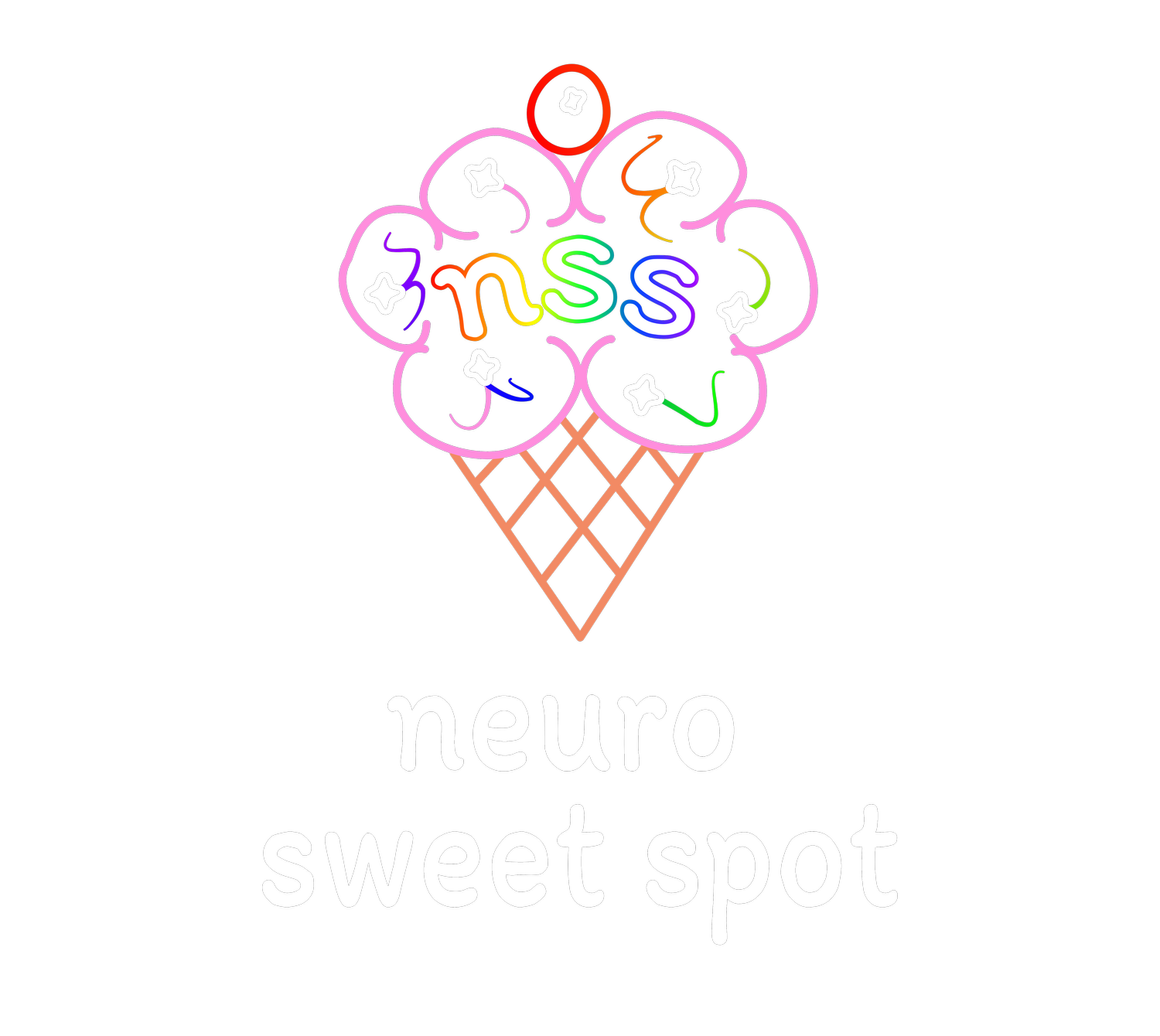
Education and Tangible Resources:
Dive Into Insights and Tips
Discover Your Brain. Discover You.
Clarity brings confidence as you find your Neuro Sweet Spot.
Do I Need an Official Diagnosis?
Why or Why Not?
If someone has mentioned that they believe you, or your kid, is neurodivergent, you may wonder what your best next steps could be.
this is not a one size fits all answer - there are reasons you would want to pursue an official diagnosis and reasons you may rather self-identify
Some things to consider:
Evaluation and assessments are lots of questions and observations, they are not scanning you for “neurodivergent ions” (not a thing) in your body to confirm
Information is power, but this can come from lots of different places
Some evaluations aren’t always the best structure for honest/insightful reflection
(here’s looking at you ADHD assessments that ask parents — who likely also have some similar traits — if they see traits in their kids that are atypical.
Of course NOT, the parent thinks if it’s a trait that they also do, then it must be “normal” for the kid to as well.
Flagging the “Well, isn’t everyone a little neurodivergent?” false thought.)
Possible reasons you may want to pursue a more formal diagnosis:
The person is in grade school and struggling to get proper supports when they are struggling
a formal diagnosis leads to official supports, for example instructions being delivered in ways that are a better fit, or additional time
a formal diagnosis facilitates an official 504 or IEP that protects human rights by law
The person is struggling to get supports at their place of education or employment
a formal diagnosis can help protect rights by law and give needed leverage for advocating for mental wellbeing changes
the person is financially able and has access to evaluation spaces that can help them understand their own brain and body functioning better, feels it would help in their self identity and personal journey.
a formal diagnosis may help them navigate their current external social or internal mental health dynamics if trying to balance the presence of confusion, dismissal, judgement, or shame.
Possible reasons you may not want to pursue a formal diagnosis:
It’s not financially or socially accessible right now, and while information would be nice, an official assessment is not something that can fit at this time
Self diagnosis is incredibly valid, especially when there are many barriers to be able to access this direct form of mental health care in our society today. You are seen. You are valid.
The person has researched neurodivergent topics for themselves and find that they really resonate in many areas of their life and functioning, is finding ways to support their needs without formal intervention
Accepting that we are part of the neurodivergent world, even if we aren’t sure what “flavor” of neurodivergent we are, it’s allowing yourself to explore without fear or judgement that really opens up the possibility of feeling better tomorrow
The person has family or friends who have shared information with them about neurodivergence and has found community that accepts and supports them, helping them to feel they can ask for help and grow
Even without a diagnosis they are receiving appropriate social, educational, and other supports that enable them to accommodate their own needs, strengths, and limitations.
There can be societal/social stigma around diagnoses, and it is a very personal decision to embrace an official process, or to explore on your own in trusted spaces that are safe for you
Resources for either way:
The Self Assessment Guide on Neuro Sweet Spot
online assessments
AMSE self scale
check out other ND social media
Neurowild
Stimmy
Read some of these books:
Gain understanding how to calm your nervous system with physical somatic practices, so you have your “flashlight in the forest”
Again, there is no one size fits all answer. It is a very personal decision to pursue any official diagnosis or not. These reasons also may change over time, maybe it’s not necessary right now, but in the future it would be. This does not mean your journey was wrong, it means that you are learning to listen to what is actually helpful for you and your needs and adapting as it changes. Listen to yourself, seek out information, seek people, spaces, and professionals you trust (if you can).

